According to the Geopolitical Monitor (Canada) and Channelnewsasia (Singapore), it is no coincidence that the United Nations (UN) chose Hanoi as the venue for the signing ceremony of the UN Convention against Cybercrime (also known as the Hanoi Convention).
For Vietnam, this is a significant diplomatic step forward as it hosts the signing ceremony of a major multilateral UN treaty – clear evidence of Vietnam's growing international standing and an opportunity to enhance its global position and cybersecurity defenses in the context of increasing attacks on critical infrastructure.
Furthermore, the event marks a milestone in Vietnam's 47-year partnership with the UN, and demonstrates Vietnam's ambition to participate in shaping global digital governance rules.
According to the report cited by the Vietnam News Agency correspondent in Singapore, the opening of the Hanoi Convention is particularly significant for Vietnam given the numerous cybersecurity issues currently facing the country and the region.
Specifically, domestically, Vietnam is facing numerous issues related to cybercrime, such as online fraud, data leaks, and cyberattacks targeting critical infrastructure. Strengthening international cooperation through the Hanoi Convention will contribute to helping Vietnam protect and consolidate its rapidly developing digital economy .
Meanwhile, in the region, the recent emergence of worrying hotspots related to online fraud schemes is having a significant impact on regional security, including that of Vietnam.
According to khmertimeskh.com (Cambodia), analyst Thong Mengdavid from the Institute for International Studies and Public Policy (IISPP) at the Royal University of Phnom Penh stated: “The Hanoi Convention will help Cambodia strengthen its legal framework, enhance international cooperation, and contribute to joint efforts in addressing sensitive issues in the region and the world. The Convention will also help Cambodia bridge existing legal gaps in data monitoring, extradition, and victim protection.”
According to Sputnik (Russia), the UN Convention against Cybercrime is the first document of its kind to be named after Hanoi, the capital of Vietnam. This reflects the international community's high regard for Vietnam's contributions to the document's development, and is a clear recognition of Vietnam's role and contribution to a major international issue.
In addition, foreign experts have also positively assessed Vietnam's efforts in ensuring cybersecurity domestically. For Russia, the ratification of the Hanoi Convention is of particular importance to Vietnam-Russia relations.
According to a VNA correspondent in Oceania, the New Zealand website scoop.co.nz highly appreciates the importance of the Hanoi Convention and the signing ceremony of the convention.
The newspaper wrote: “The event in Hanoi is the result of five years of negotiations between UN member states with the participation of experts, civil society, academia, and the private sector. This document establishes a common international framework for combating cybercrime; it provides unified definitions, common investigation standards, and mechanisms for supporting victims. The Convention will usher in a new era in protecting online users.”
Clearly, for governments, businesses, and individual internet users, the Hanoi Convention will bring about a transformation once it is implemented.
Investigations into ransomware, phishing scams, online child abuse, cryptocurrency laundering, and transnational fraud will be conducted on a stronger legal foundation with the goal of accelerating international cooperation, narrowing the "hideouts" of cybercriminals, enhancing victim protection, and creating a stronger deterrent.
According to the UN website news.un.org, 72 countries have so far signed the Hanoi Convention, including 64 that signed on the spot at the plenary session, a move praised by UN Secretary-General Antonio Guterres as “a historic step toward a safer digital world.”
The UN noted that the signing ceremony, organized by Vietnam in coordination with the UN Office on Drugs and Crime (UNODC), attracted high-ranking officials, diplomats, and experts from across the region.
According to a TTXVN correspondent in Algiers, the Algerie360 website commented that the number of countries signing the Hanoi Convention reflects the broad consensus of the international community on this important document.
KBS (South Korea) also commented: “With over 70 countries having signed, far exceeding the 40 needed for the convention to take effect, it is hoped that with a clear legal framework and strong international consensus, the fight against online fraud will make more solid and effective progress in the future.”
(VNA/Vietnam+)
Source: https://www.vietnamplus.vn/truyen-thong-quoc-te-neu-bat-vi-the-cua-viet-nam-ve-chong-toi-pham-mang-toan-cau-post1073084.vnp







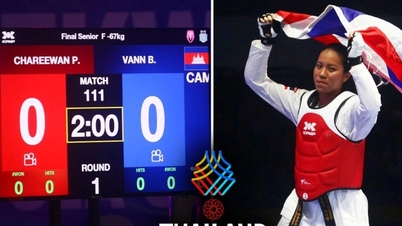

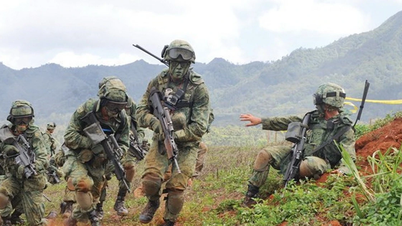


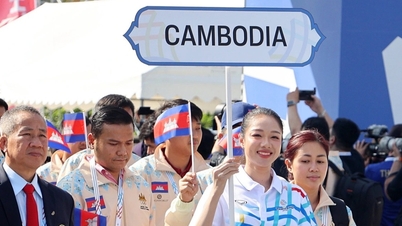


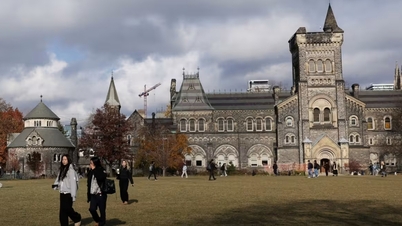





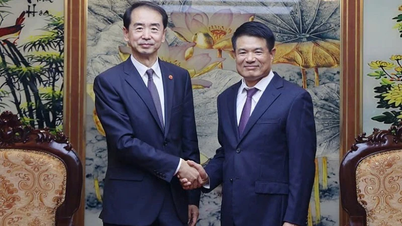






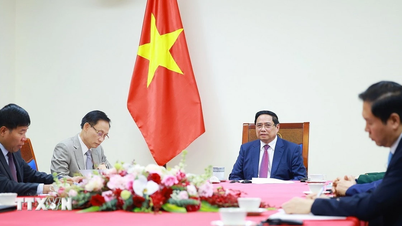





![[Photo] Prime Minister Pham Minh Chinh holds a phone call with the CEO of Russia's Rosatom Corporation.](/_next/image?url=https%3A%2F%2Fvphoto.vietnam.vn%2Fthumb%2F1200x675%2Fvietnam%2Fresource%2FIMAGE%2F2025%2F12%2F11%2F1765464552365_dsc-5295-jpg.webp&w=3840&q=75)

























































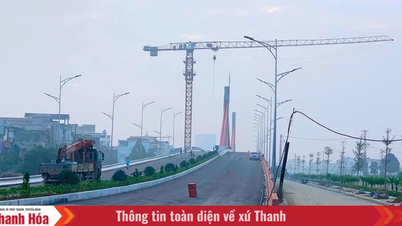

















Comment (0)